
Gender equality is a human right. It is also essential for eradicating poverty and improving the lives of future generations. Gender equality is at the heart of all our programming and advocacy work. IPPF pushes for legal and policy reforms which combat female genital mutilation (FGM), early forced marriage and other forms of gender discrimination.
Articles about Gender equality
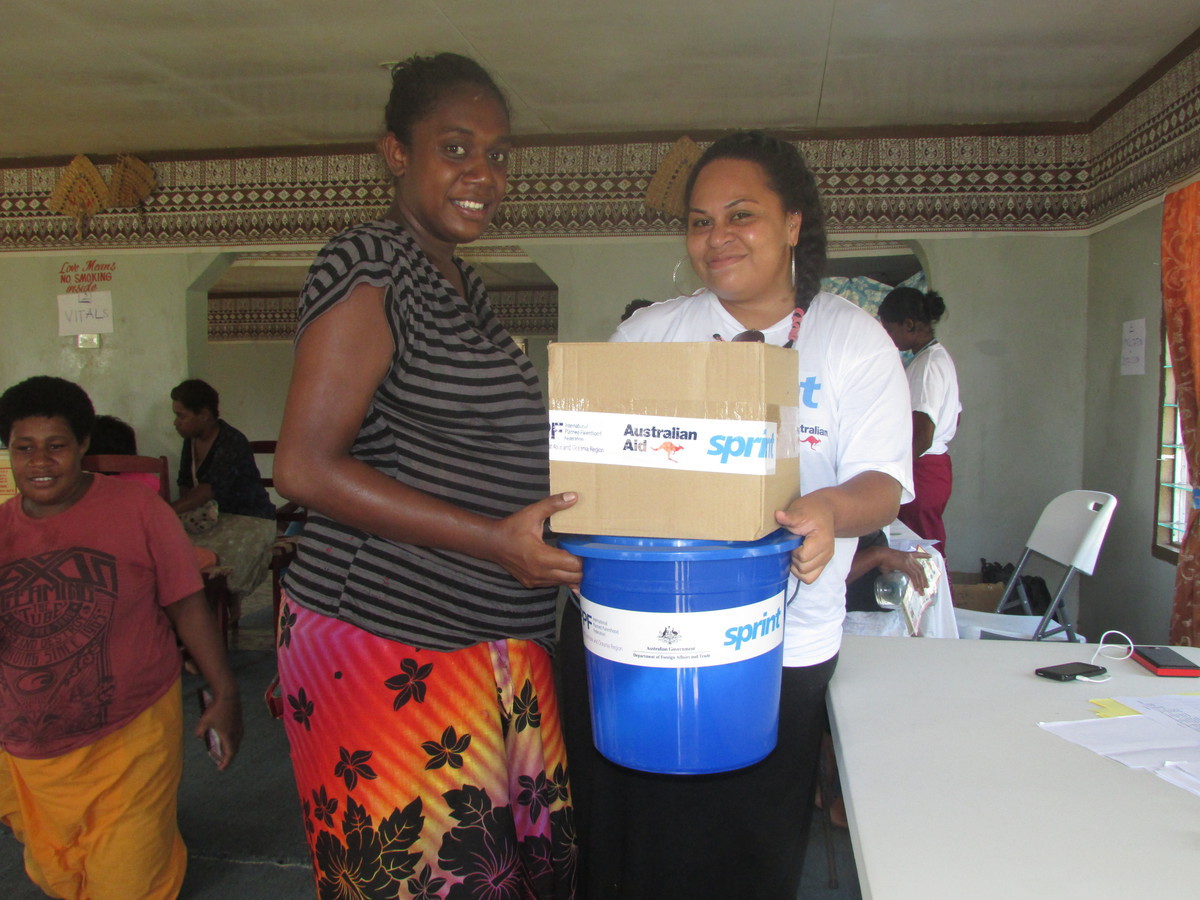
Fiji update
One month on the Cyclone Winston hit Fiji, IPPF-SPRINT is still providing sexual, reproductive and maternal care to cyclone-affected population.
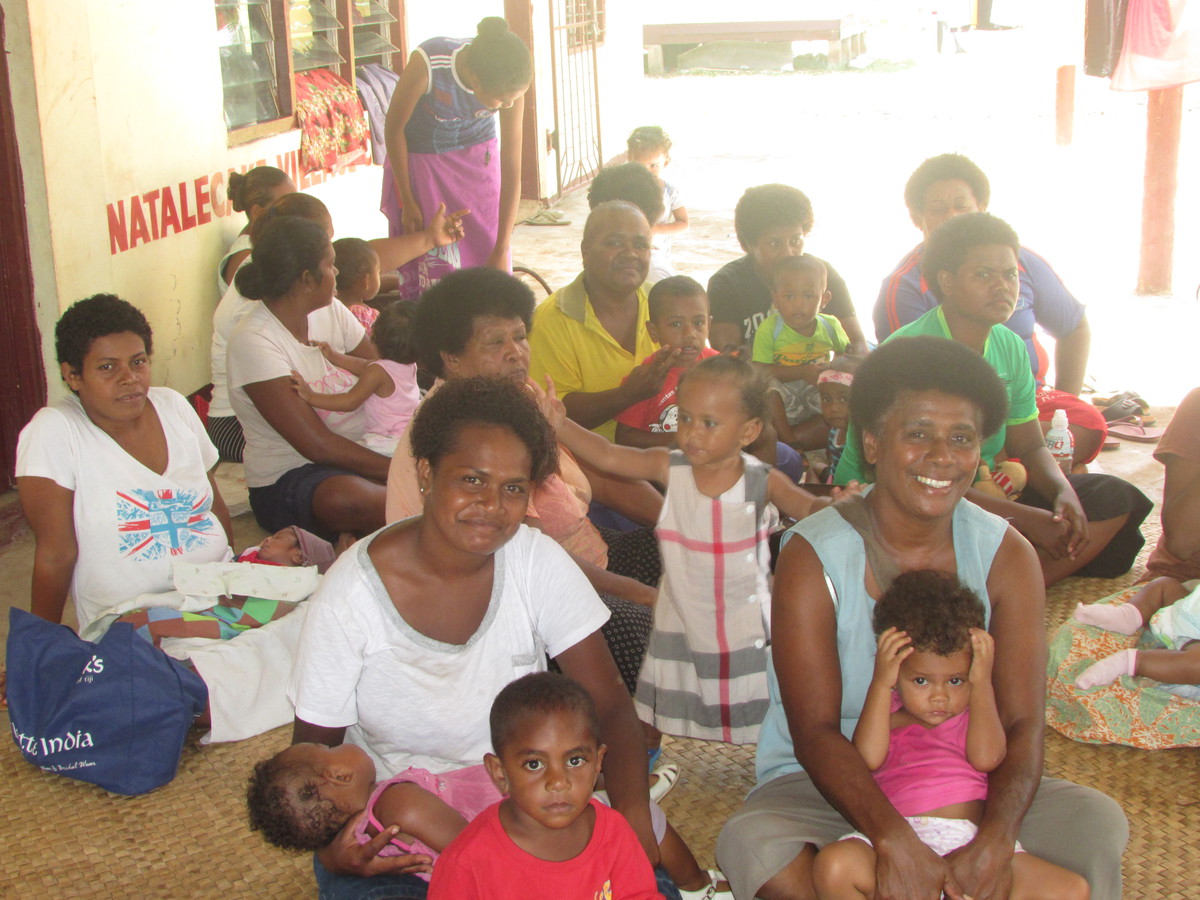
Emergency update from Fiji
One month on from Cyclone Winston, IPPF has helped hundreds of families, including new mothers and pregnant women. Thousands of people are disaplaced and 43 have now been confirmed dead in the worst tropical super-storm to have ever hit the Pacific. IPPF’s humanitarian wing, the SPRINT Initiative, is solely funded by the Australian Government to provide life-saving sexual and reproductive health services following a humanitarian crisis. The Australian Government provided an additional AUD $100,000 to ensure SPRINT could respond to the worst affected populations. IPPF’s assistance includes distributing hygiene and dignity kits to pregnant women and new mothers, providing maternal and neonatal healthcare, providing family planning and prevention programs to reduce the spread of sexually transmitted infections, including HIV. There has been an urgent need to respond to the immediate sexual and reproductive health needs of communities, specifically vulnerable groups such as pregnant and lactating women and women & girls at risk of gender-based violence. In crisis settings rates of gender-based violence drastically increase, and SPRINT has provided survivors with emergency care and services. IPPF-SPRINT has reproductive health missions in the provinces of Nataleira, Natalecake, Vadravadra. The Ministry of Health, under the Fiji Government, has also committed their medical staff to IPPF's medical camps. A key partner to the humanitarian repsonse is IPPF's local member association, the Reproductive and Family Health Association of Fiji (RFHAF). The Australian Minister for Foreign Affairs, the Honourable Julie Bishop paid a visit to IPPF-SPRINT’s SRH mission in early March to observe the work of the Australian-funded response. The Minister also distributed hygiene kits to the affected population in Rakiraki hospital in western Fiji. Apart from providing key sexual reproductive services, IPPF-SPRINT is also providing basic medical assistance to those affected.
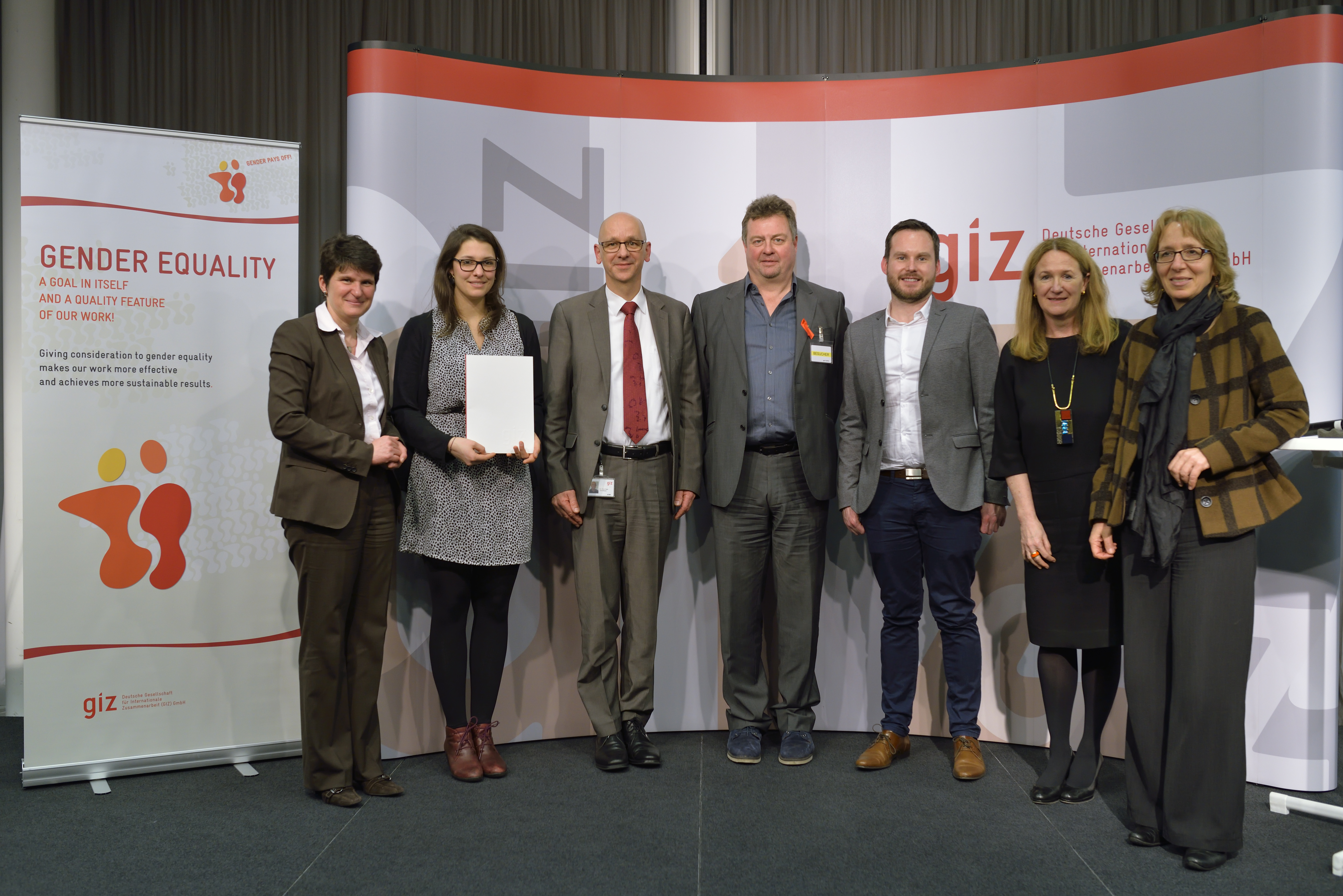
IPPF recognized in the GIZ Gender Prize 2016
IPPF has been recognized in the GIZ Gender Prize 2016 competition which promotes gender mainstreaming. Deutsche Gesellschaft für Internationale Zusammenarbeit (GIZ), a leading provider of international cooperation services for sustainable development, holds an annual internal Gender Competition to promote creativity and innovation for gender equality in their sustainable development work. GIZ’s global BACKUP Health programme won first prize for promoting gender equality within programmes funded by the Global Fund to fight AIDS, Tuberculosis and Malaria. The collaborative ‘Shadows and Light’ project with IPPF was highlighted for its gender transformative approach to sexual and reproductive health (SRH) and HIV services for all, including women and girls, men and boys, and anyone perceived to be outside of the norms that constitute what are ‘feminine’ and ‘masculine’, including lesbian, gay, bisexual, transgender and intersex people. Delivered by IPPF Member Associations in Cameroon, Kenya, India and Uganda, the three-year project focused on men who have sex with men, sex workers, people who inject drugs, and transgender people – populations at increased risk of HIV and other STIs – and set out to improve the linked sexual and reproductive health and HIV needs of these key populations. Alan Smith, IPPF’s Senior Advisor, HIV said: “I am very pleased that IPPF is recognised - with our partners GIZ - for this gender award linked to International Women’s Day, in particular for our innovative Shadows and Light project which focusses on the rights of key populations and challenges traditional gender norms.” Other winners included a renewable energies and energy efficiency programme in Mexico and a vocational training and sustainable development initiative in Ghana. Eighty seven teams from 52 countries participated in the competition which covered the fields of governance, economic development and employment, environment, climate change and biodiversity, agriculture and rural development, energy, public finance, education and health.
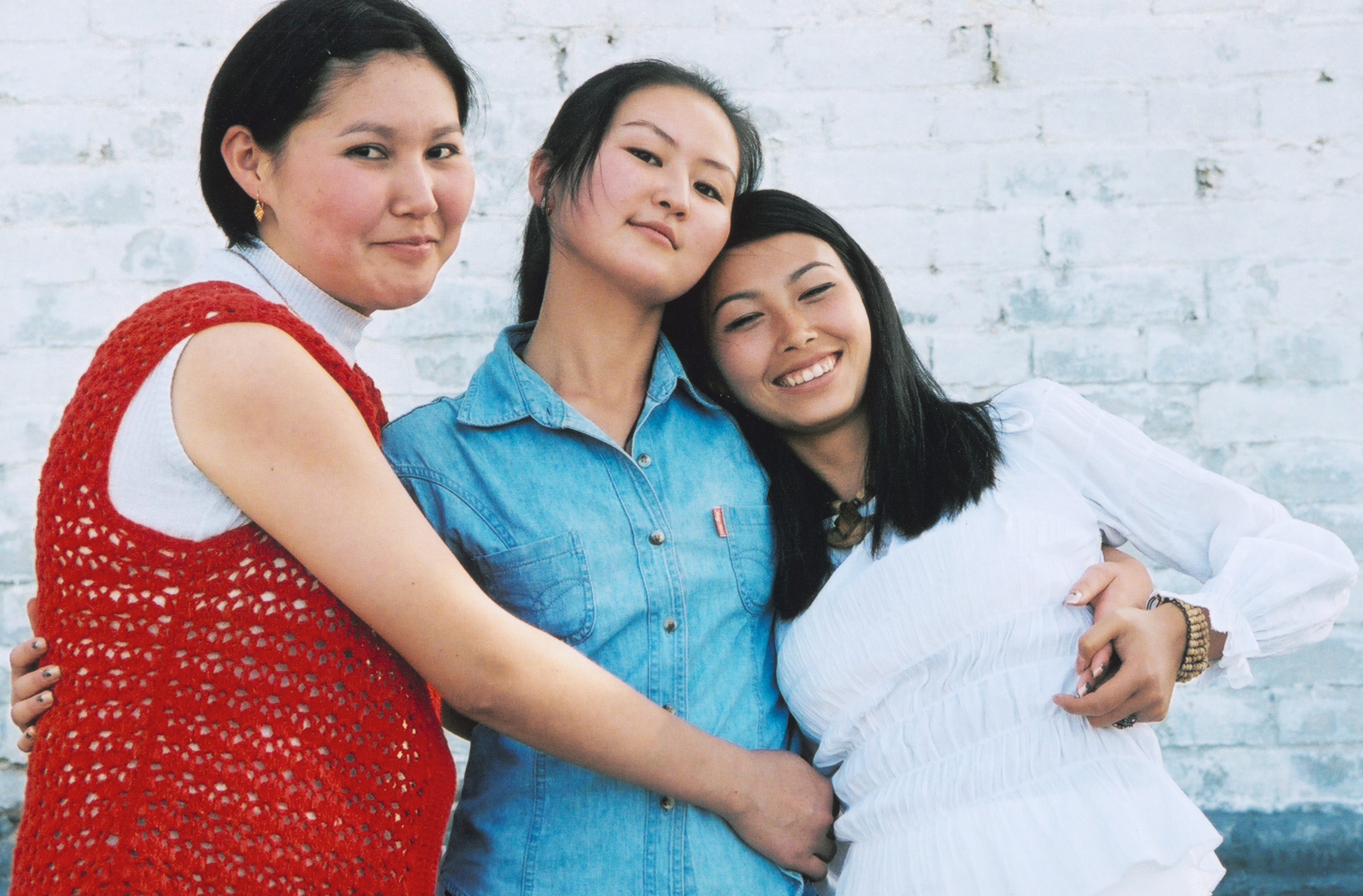
IPPF welcomes new UN commentary on indivisible right to sexual and reproductive health
On International Women’s Day, the International Planned Parenthood Federation (IPPF) has welcomed a new commentary from UN experts which says that the right to sexual and reproductive health is indivisible from other human rights. “It is absolutely right for the Committee to address the issue of sexual and reproductive health specifically, today of all days,” said Tewodros Melesse, IPPF’s Director General. “Sadly millions of women are still denied their basic rights because they are poor, because they suffer discrimination or because they lack legal protection.” The 18 independent members of the Committee on Economic, Social and Cultural Rights said that the right to sexual and reproductive health was not only an integral part of the general right to health, but fundamentally linked to the enjoyment of many other human rights, including the rights to education, work and equality. They said that a lack of care for mothers in childbirth or a lack of access to safe abortion, often leading to maternal death, constitutes a violation of the right to life, and in certain circumstances can amount to torture. “No woman should die in childbirth in 2016 because of a lack of adequate care,” said Mr Melesse. “We know that access to safe abortion saves women’s lives, yet millions are denied that right.” IPPF is a network of sexual and reproductive health and rights organisations in 170 countries that are equipped to monitor and respond to any member of the public who wants information, services, contraception and access to abortion and are available to serve at the first point of response. For further information and interviews contact press office 02079398227
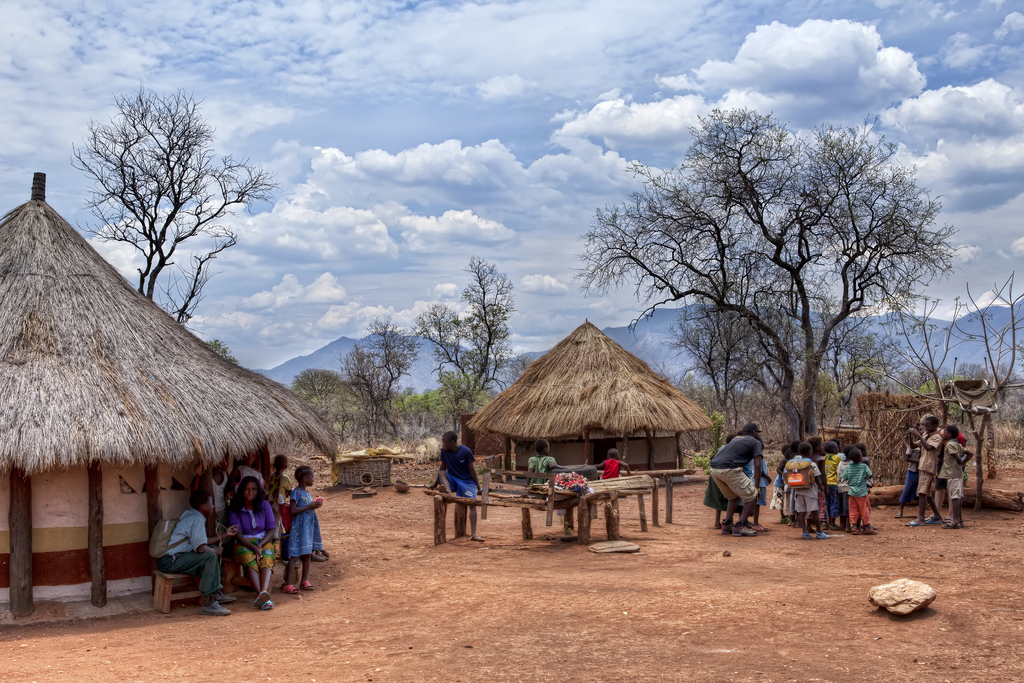
Women and men are equal partners for change
Seri Wendoh is the Senior Advisor for Gender, Adolescents and Rights at IPPF's Central Office. I met Cheyenne on a recent visit to Zambia. She is 35, and her family’s provider as well as its carer. Cheyenne spent 12 hours a day working as a hawker selling salt and caring for her extended family and children. The community she lived in was a mining town and her husband had lost his job when the mines shut down. He became depressed, spending the little money they had on drink and becoming violent to her and the children. He had become resentful of her, and the violence had reached their bedroom. Cheyenne was being forced, coerced, guilt-tripped into having sex. She wanted to know how to stop it. The bedroom is where the heart of the relationship unfolds. Cheyenne wanted to shine a light on the power struggle within her relationship. “This is the reality for me and others like me in my village”, she told me. It may seem awkward to talk about relationships as a “power struggle” between two people. But actually gender inequality is the key to understanding all of the sexual and reproductive health problems that we see all over the world. I am struck by the resilience of all the women I have had the honour of meeting. As a specialist in gender equality I conduct many workshops with women in rural communities. It was during one of those conversations that I met Cheyenne. “Other charities come here and we have all these workshops. They talk to us about opening the window and shining a light on this and that, but why does nobody ever talk about the ‘bedroom window’?” she asked me. In Cheyenne’s town, unemployment has risen drastically. HIV is increasing. Violence is prevalent. In 2014, IPPF served a total of 85,000 people in Zambia. But only 9% of them were men. Of the 77,000 female clients served, 98% of them were poor or vulnerable. Why do so few men seek the sexual health services that they need? Why do they only see this as a woman’s issue? At the same time, many men want to control women’s reproductive health. To achieve gender equality, we must tackle this inequality – root and branch. Women must be empowered to be in control of decisions that affect them and their loved ones. We must dust away the cobwebs of invisibility that silence women’s voices and allow them to have full voice. This is why IPPF has joined with the African Union and our national member associations in seven African countries, including Zambia, to try to end early enforced marriage. Cheyenne did not want to be cloaked in victimhood. She wanted a chance to realise her hopes, to make her own choices, to participate in her community discussions. Women want change, they want to be agents of that change – they want an equitable future for themselves, their families and their communities. The resilience and courage from women like Cheyenne is a source of strength and inspiration to others like her. The supportive communities that women build for themselves can make all the difference to their mental and emotional health. IPPF stands proudly behind help to empower women. We’re lobbying governments and partnering with local advocates to raise their voices. But most importantly, we’re engaging men. The key is to see them as equal partners for change. They need to start sharing decisions with women. Image credit: Zambezi Village, Zambia (source: flickr/ Johnny Peacock, creative commons)
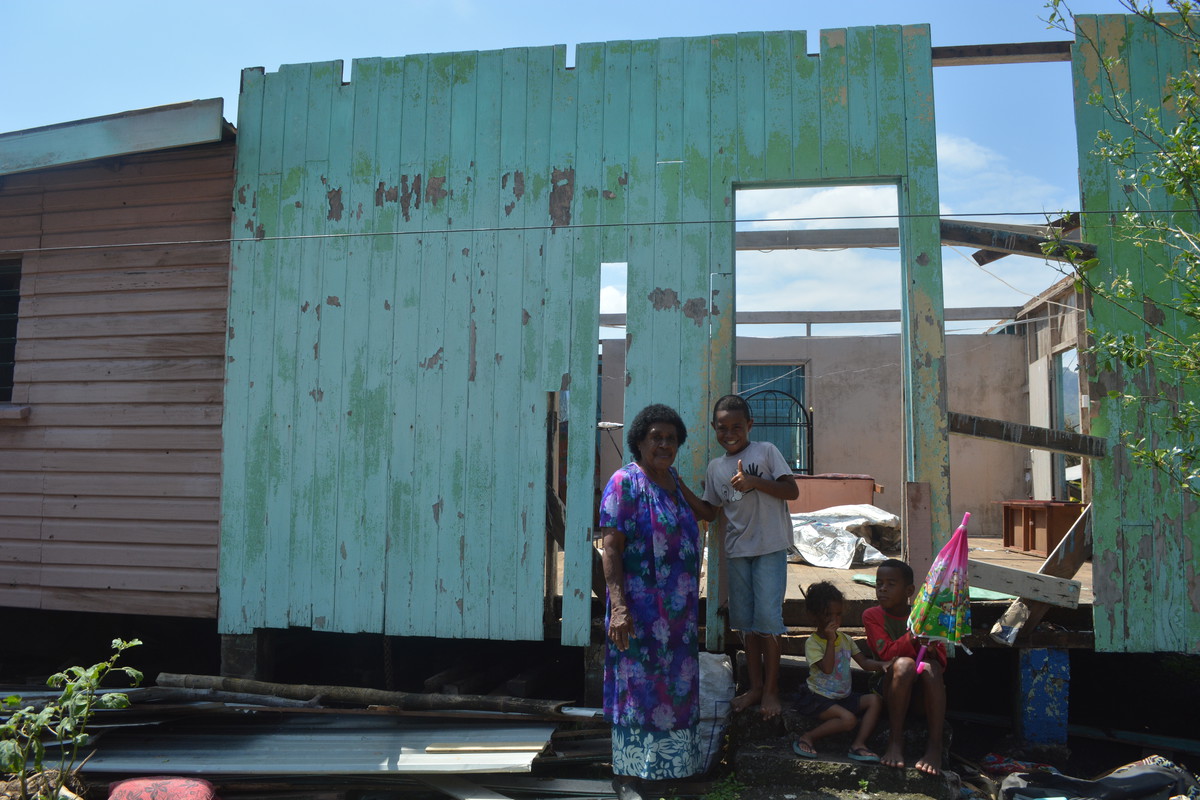
“I have never experienced such a strong cyclone in my 77 years of life.”
“I have never experienced such a strong cyclone in my 77 years of life.” Jokaveti Bavou lives in the village of Drauniivi, in the Fijian province of Ra. It was right in the path of Cyclone Winston, the strongest storm to ever strike the Southern Hemisphere. A week on from the disaster, Jokaveti, her son Jim and her grandchildren are safe. But there is no longer a roof on her house, and precious little left inside. In a village of 910 people, 75 houses were completed destroyed and about 65 damaged. Jokaveti was in her house with her grandchildren when Cyclone Winston arrived. “On Saturday night the winds started to increase. I told Jim that I was not sure of the house; I didn’t believe that it would be able to keep us safe. I told him that if the house started to collapse, we would run to his house for safety.” “The wind was getting stronger and when I looked at the back door, it had blown open. I took a hammer and nail to it. But when I got back to the other room, the main door had blown open and the wind was really strong. Then the wind took the roof off my house.” “I told my granddaughter that everything was terrifying and we needed to go and hide somewhere. It was not safe to be in the house because of the flying debris.” “I got out and my son called out from his house and told us that we should go and hide underneath our house. He tried to come out of his house to save us, but the wind was so strong and roofing iron was flying around.” “I went underneath my house with my grandchildren holding a lamp and stayed there until the wind died. My son’s eyes never left us. Luckily for us a corrugated roofing iron flew and covered where we were hiding. I just cried and continued to thank God for keeping us safe.” “I could sense fear from all of us including my grandchildren. They were crying too. My son kept on calling to check on us until the wind died down.” Miraculously, no-one from Jokaveti’s family or the village was killed or seriously injured. IPPF is establishing centers in the Northern and Western parts of Fiji to provide medical services, especially those that deal with maternal and child health and sexual and reproductive health. It is working closely with the Reproductive and Family Health Association of Fiji (IPPF’s member in Fiji), UNFPA Pacific, Empower Pacific, Fiji’s Ministry of Health and Medical Services. Donate now!
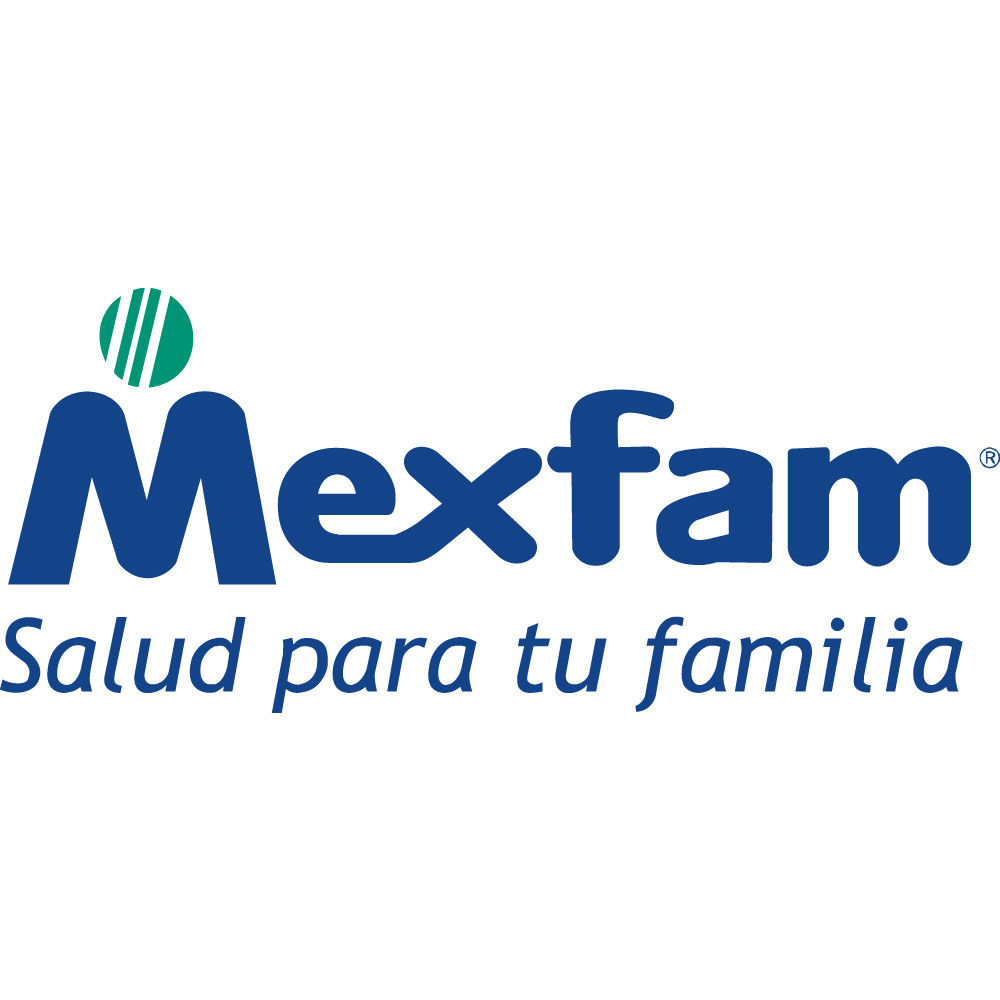
Social accountability: What is it and how does it help democracy?
Esperanza from Mexfam, IPPF’s Member Association in Mexico, presented a session on social accountability at the International Conference on Family Planning. But what is social accountability and how does it help democracy? “Governments should be accountable to their citizens. The community should be able to have a have a say in the services they receive from government – are they on time, of good quality, located in the right places?” says Esperanza. “A true democracy allows the community to hold its government to its promises and there should be a recognised, official mechanism for citizens to do that.” “12 years ago I would say that Mexico wasn’t able to provide such a mechanism. Now it’s different and there’s scope to express your opinion. “My other tip for promoting social accountability is to build your own organisation’s internal accountability first - once you have a strong organisation with robust protocols - then you can challenge governments, regardless of who’s in power. “As for the future - I believe the SDGs will transform a world that desperately needs change. In Mexico I would like to see a peaceful society and one that respects human rights. Respecting sexual and reproductive health and rights are critical for change. When the SDGs wrap up in 2030 I hope Mexico will be a country where women and girls participate fully in public life and policy making – that will be better for society and for our country.”
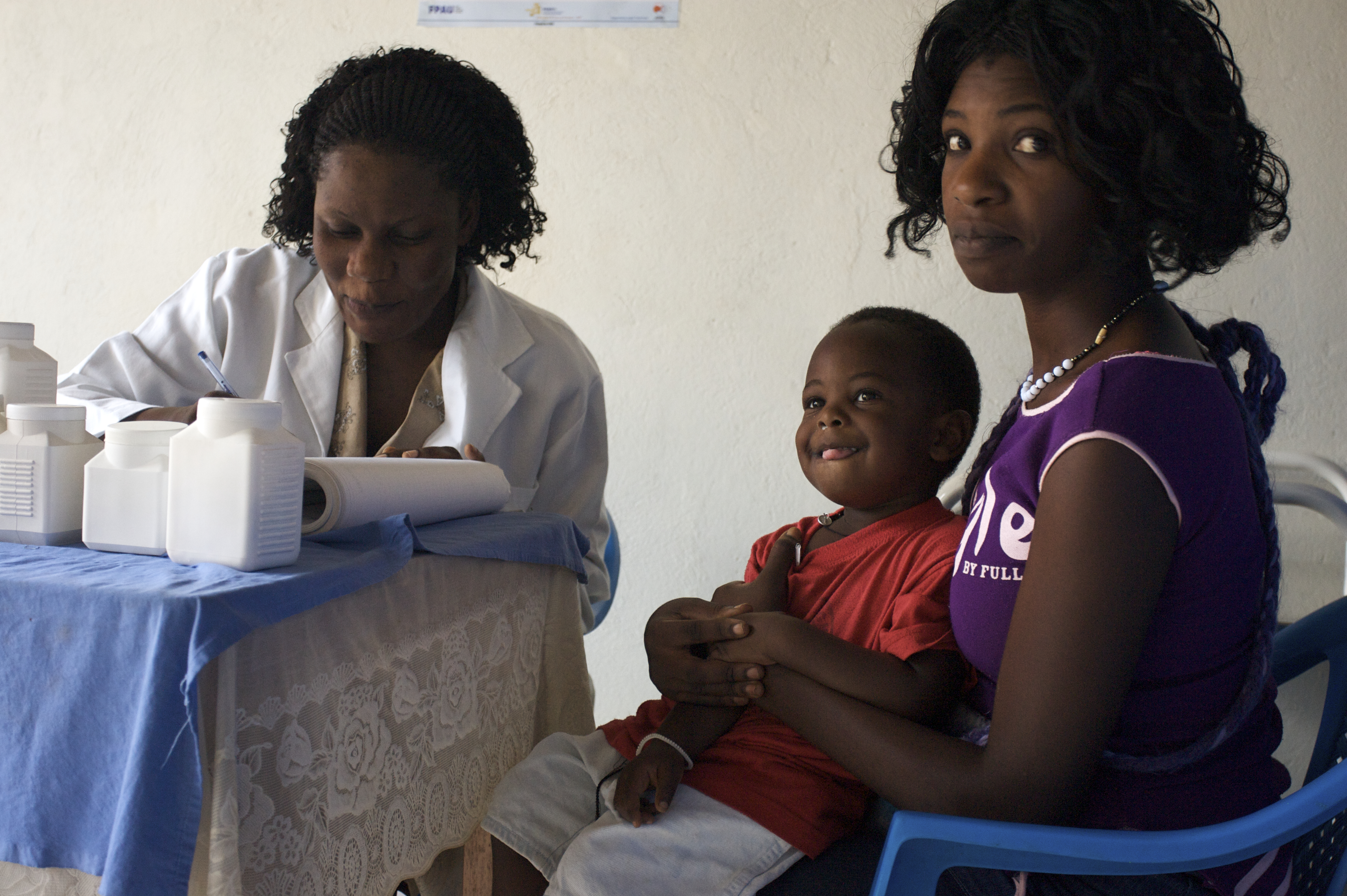
IPPF calls for G7 leaders to prioritize the full range of sexual and reproductive health care services in Universal Health Coverage
18 February, Tokyo:The International Planned Parenthood Federation (IPPF) calls for G7 leaders to prioritize the full range of sexual and reproductive health care services in plans for Universal Health Coverage in their forthcoming Ise Shima G7 Summit in May. IPPF made this call at this week’s G7 Health Experts’ Meeting in Tokyo. IPPF said sexual and reproductive health care (SRH)services are essential because they save lives, are cost effective and offer universal benefits. IPPF highlighted that SRH services are critical to achieving women’s empowerment, equality and full participation in society. These services play a crucial part in the development of resilient health systems that can help reduce the impact of humanitarian disasters. Giselle Carino, IPPF Western Hemisphere Regional Director Designate, who attended at the meeting said: "Governments (public sector) cannot work alone to ensure that no-one is left behind. Locally-owned organizations, such as IPPF Member Associations, are working at the frontline supporting communities, particularly poor and underserved people including women and adolescents, to make a real and sustainable difference in their health status and realize human security. G7 leaders must recognize the role of civil society in health system strengthening and building a new global health architecture". IPPF also calls for: The principle of Universal Health Coverage: that everyone has the right to health without facing financial hardship and no social groups can be left behind. Essential sexual, reproductive, maternal, new-born, child and adolescent health services at the primary care level should be a priority of Universal Health Coverage because investment in these services is among the most cost-effective interventions that a health system can provide. The importance of the social and gender determinants of health should be recognized by mainstreaming gender equality into Universal Health Coverage and national health strategies. Making significant progress on both targets 3.7 and 3.8 would be transformative. Therefore IPPF urges the G7 to prioritize discussion of how these targets can be achieved during preparations for the Ise-Shima summit and in particular calls on the G7 to ensure that sexual and reproductive health services are prioritized in plans for Universal Health Coverage.
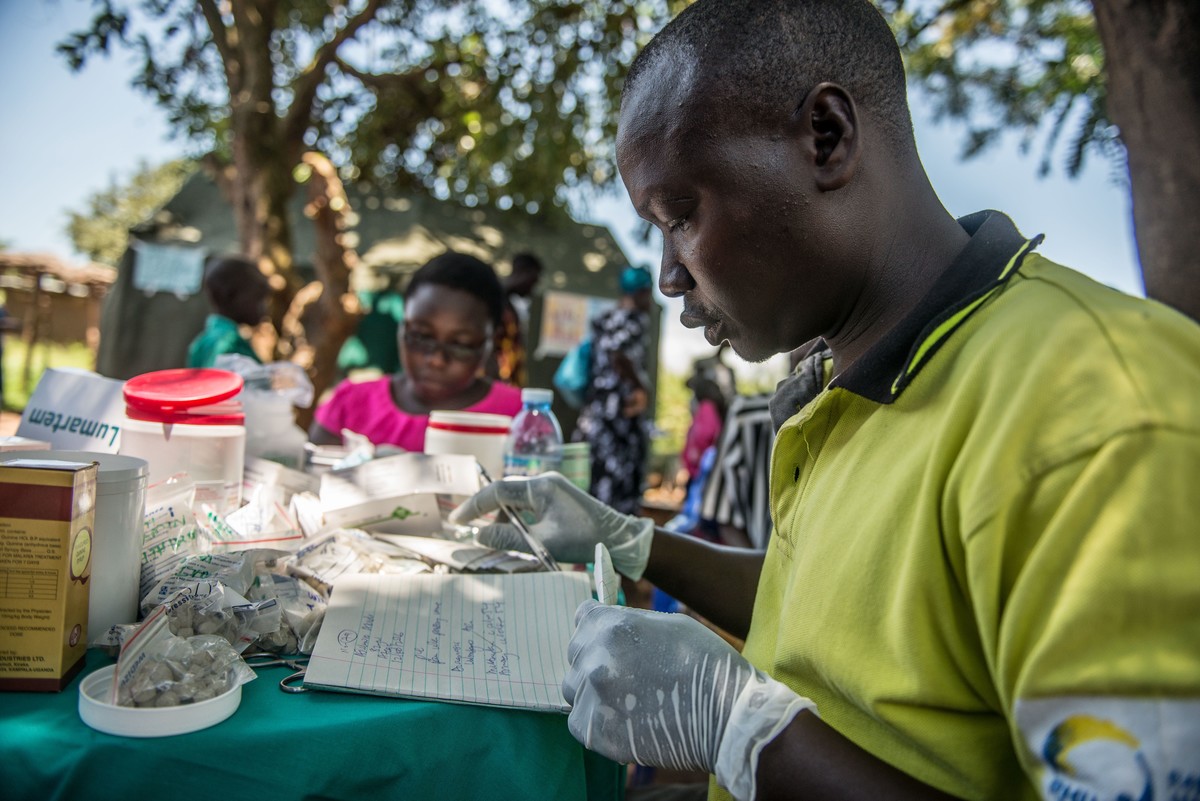
Evidence Project
Under the Evidence project, IPPF is undertaking innovative research on respecting, protecting and promoting human rights in family planning/reproductive health services and ensuring community voices are part of efforts to improve and strengthen family planning programming. The Evidence Project uses implementation science to improve family planning policies, programs, and practices. Led by the Population Council in partnership with INDEPTH Network, International Planned Parenthood Federation, PATH, Population Reference Bureau, and the project’s University Resource Network, the five-year project (2013–2018) is investigating which strategies work best in improving, expanding, and sustaining family planning services. IPPF is leading on two cross-cutting areas of research. Firstly under the Evidence project, we are undertaking research on how the respect and protection of human rights of women and girls can be instituted and operationalised, and how programs can be held accountable for providing high-quality services. http://evidenceproject.popcouncil.org/technical-areas-and-activities/equity-rights-and-accountability. In order to address the need for indicators and tools for rights based family planning, the Evidence Project has partnered with global experts on human rights and family planning, the International Planned Parenthood Federation’s Sustainable Network Project (SIFPO/IPPF) and with colleagues at Reproductive Health Uganda (RHU) to develop and validate the Rights-Based Family Planning (RBFP) Service Delivery Index in Uganda. This is work is being undertaken in close collaboration with the Economic Policy Research Centre Uganda and University College London. In addition, we are undertaking a variety of activities that aim to contribute to a deeper knowledge of whether and how the implementation of accountability mechanisms in family planning and reproductive health programs improves clients’ access to and quality of services. For example, a multi-site case study in Uganda uses process evaluation methodology to explore the implementation of two social accountability programs, aiming to determine what hinders and facilitates engagement at the community level and its translation into improved social accountability processes and reproductive health outcomes. http://evidenceproject.popcouncil.org/accountability-mechanisms-to-improve-family-planning-and-reproductive-health-programs/

What does it take to save a life?
Imagine this: You’re pregnant, living at home, expecting to give birth in a few weeks’ time with the assistance of staff at your local clinic. But then disaster strikes. It could be a typhoon, or a tsunami or conflict. You flee and then find yourself in a makeshift camp where nothing is certain anymore. Bad enough you’ve left everything you own behind. Bad enough you no longer feel safe – you can’t lock a tent door. But you’re relying on people who you don’t know for food – and people you may not trust for security. And how will you give birth? When you hear of populations dislodged, yout think of the immediate challenges of food and shelter. But what about contraception and neo-natal services? What about the dangers of sexual violence that women and girls in particular face? This is why IPPF’s humanitarian arm SPRINT was founded: to ensure access to essential Sexual and Reproductive Health and Rights services for women, men and children in times of crisis. In Syria 46,500 women will suffer gender based violence, including rape, as a result of the ongoing conflict. This shows a great need to ensure that the human rights of women and girls are protected and able to access sexual and reproductive healthcare. The Syrian Family Planning Association is in the front line when it comes to dealing with domestic-based violence – the less-reported consequence of every war. The kind of violence facing one of our clients, Amal. Amal had bruises on her face and was in a fragile state when she was admitted to the Al-Halbouni Health clinic. She had been severely beaten by her husband. The SFPA is committed to involving men to find lasting solutions to issues of gender based violence. Thanks to the integrated package of support services provided by Al- Halbouni clinic to her and her husband, Amal now feels safer. “I feel more aware of my rights, and I know how to find help when I need it,” she said. Women and girls are disproportionately influenced by humanitarian crises exposed to early marriage, trafficking, rape, forced pregnancies, unattended service delivery during complicated pregnancies and delivery. The statistics are shocking: 26 million of the 100 million people are in need of humanitarian assistance, are women and adolescent girls of reproductive age 500 of these women and girls die every day from complications related to pregnancy and childbirths 85 % of those displaced by the 2010 floods were women and children More than 75% of Syrian refugees who fled are women and children Women and girls are 14 times more likely to die in disaster settings than men 7 out of 10 women are exposed to gender-based violence in crises situations unfolding right now. These deaths and violence are preventable. We could stop it by putting money and efforts into an integrated comprehensive package on reproductive health into the standard humanitarian response. Progress in targeting women and girls has been achieved in the past decade. But sexual and reproductive health services are often neglected in humanitarian emergencies and still remain a less universally acknowledged priority. Over the last 10 years, IPPF has reached millions of people during floods, conflicts, earthquakes, cyclones. When health care often collapsed, our Member Associations continued to serve the unreachable, which make three quarters of IPPF clients. All IPPF approaches are bottom-up, that means we build local capacity before, during and after crisis strikes – often engaging young people during humanitarian crisis as peer-peer educators and providers. The good news is the guidelines are developed. We know what needs to be done. What we need now is action from many different stakeholders.
Pagination
- Previous page
- Page 13
- Next page






